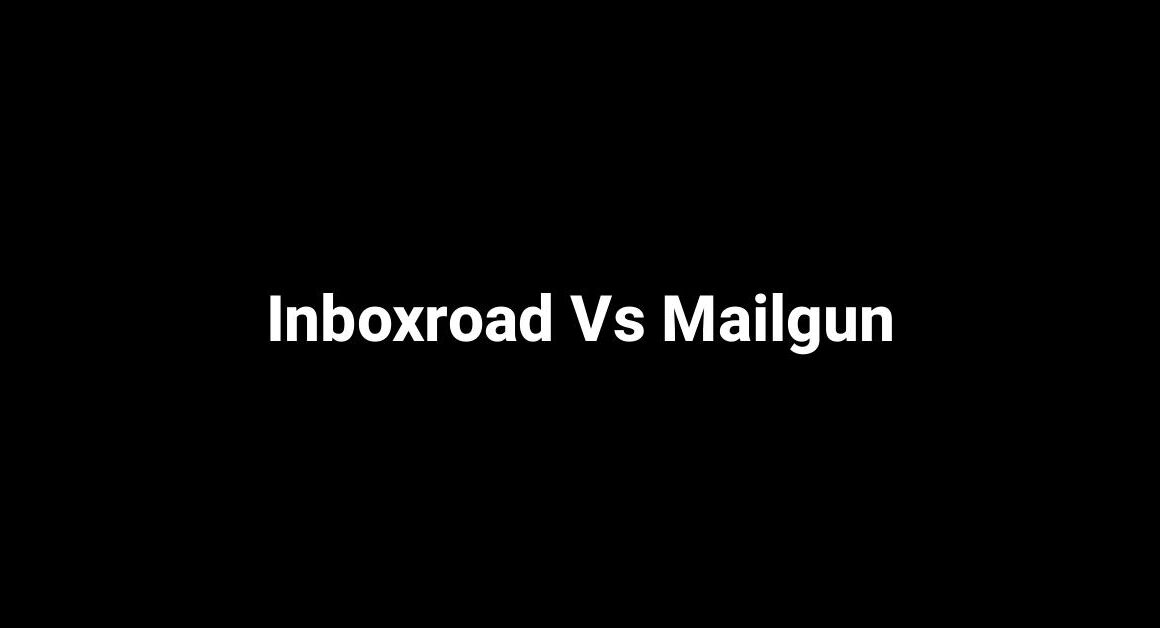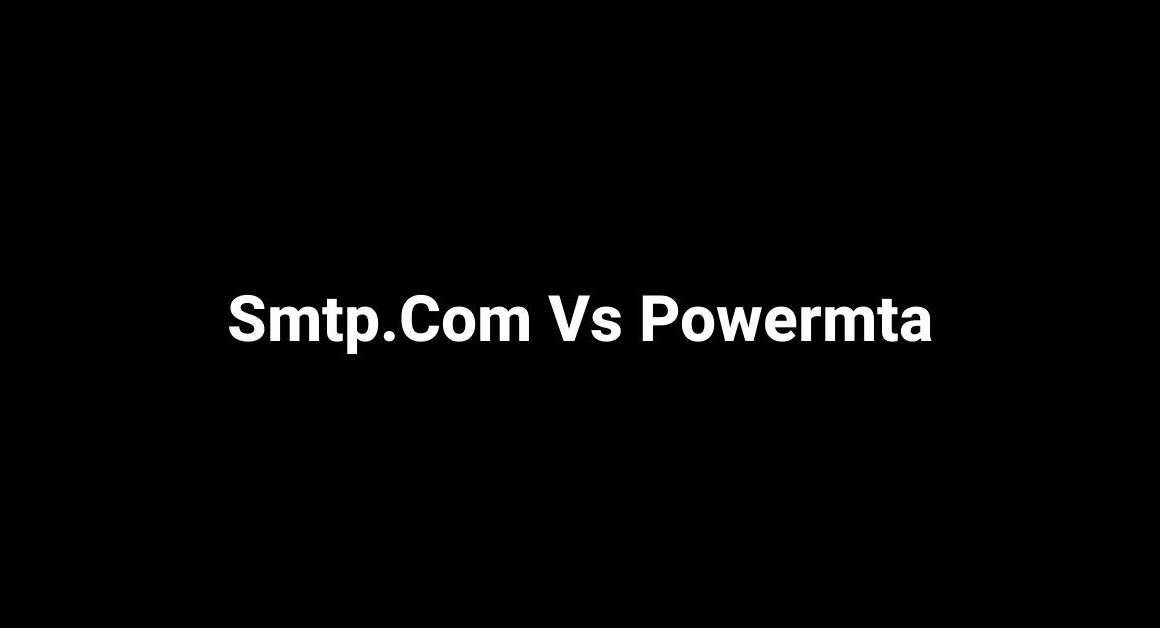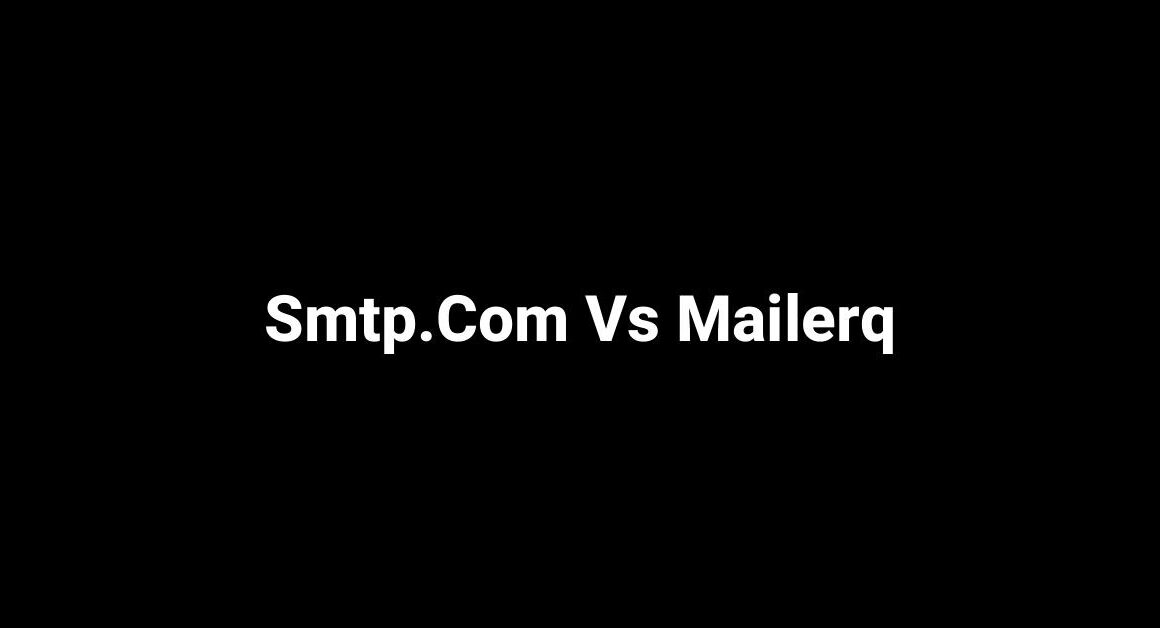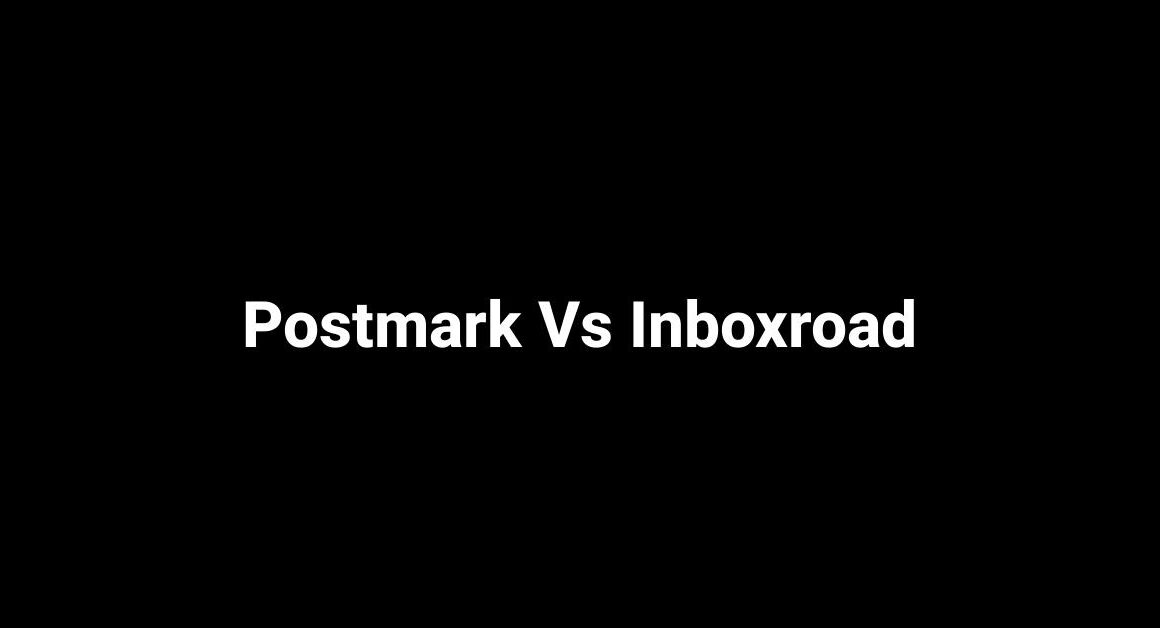Nick’s Review of Inboxroad Vs Mailgun
This text does not provide any relevant information or content that can be summarized. It appears to be a collection of links, menu options, and website information related to a product called Mailgun. As a blog writer, I would need more specific and detailed information about the product in order to provide a meaningful summary.
Tina’s Review of Inboxroad Vs Mailgun
The blog post titled “5 Mailgun alternatives, recommended by… a Mailgun competitor?!” introduces Postmark’s own email delivery service as a Mailgun alternative, while acknowledging their bias as a competitor. The post provides a comparison of five Mailgun alternatives, including Postmark, SendGrid, Mandrill, Amazon SES, and MessageBird. The comparison includes pros and cons for each alternative, highlighting their unique features, pricing, and support options. The blog post also includes a handy spreadsheet for comparing SendGrid and its alternatives based on pricing, documentation, and customer support. The post emphasizes Postmark’s lightning-fast and reliable email delivery, separation of promotional and transactional emails, data retention period, transparent pricing, email templates, excellent documentation, and refusal to upsell dedicated IP addresses. It also mentions the drawbacks of Postmark’s narrow focus and lack of additional features like SMS services and list management. The post concludes by inviting readers to try Postmark’s email delivery service and provides links to sign up for a free trial.
Steve’s Review of Inboxroad Vs Mailgun
In this blog post, we will be comparing two email delivery platforms: Inboxroad and Mailgun. We will be exploring the features and benefits of each platform to help you make an informed decision on which one is right for your email marketing needs.
First, let’s take a look at Inboxroad. Unfortunately, there is no information about Inboxroad provided in the text. However, we can still move on and discuss Mailgun, which is mentioned in the text.
Mailgun is an email delivery platform that offers a variety of features and services to help senders optimize their email strategy for greater deliverability. One of the advantages of Mailgun is the flexibility it offers in terms of sending volume. Unlike Sendgrid, which provides a limited number of free emails per month that quickly drops to only 100 monthly emails, Mailgun allows you to send emails at your own pace. They offer a variety of plans to choose from, so you can scale your email sending based on your needs without overpaying or being limited in your sending capabilities.
Another important aspect of email delivery is protecting your sending reputation. Mailgun makes it easy to prevent deliverability issues and stay off blocklists by offering an email verification service built into their platform. This service helps you keep your contact data clean and simplifies list management tasks. You can easily identify if an email address has a typo, if it’s disposable, or if it may affect your delivery rates before sending your email marketing campaigns. While Sendgrid also offers a validation product, it is mentioned that Mailgun’s validation product is more mature and could provide better and faster results.
In addition to their features, Mailgun also provides expert services to help monitor your email reputation. They offer Deliverability Services, where an expert can help you proactively monitor your IP address, domain reputation, and email infrastructure in real-time. This can be crucial in maintaining a good sending reputation and ensuring that your emails reach the inbox. Unlike Sendgrid, which only offers this level of dedicated service to high-volume senders, Mailgun provides it to all of their customers.
When it comes to tracking the performance of your email campaigns, Mailgun offers comprehensive analytics and insights. You can measure the business impact of your email campaigns with A/B testing and track how your messages are rendering on different desktop clients like Outlook and Gmail. This level of visibility can help you optimize your campaigns and improve the effectiveness of your email marketing.
Lastly, Mailgun provides access to expert services from day one. They have a dedicated deliverability team that is available to assist you throughout the onboarding process and beyond. Whether you’re just starting out with email or looking to grow your business, Mailgun works with you to customize a sending plan that meets your specific needs. They provide peace of mind knowing that you have a Technical Account Manager who is proactively monitoring your email infrastructure and reputation.
In summary, Mailgun offers a robust email delivery platform that provides flexibility, protection of your sending reputation, comprehensive analytics, and access to expert services. While there is no information mentioned about Inboxroad in the text, Mailgun seems to be a strong contender in the email delivery space. If you’re looking for a reliable and feature-rich platform for your email marketing needs, Mailgun may be worth considering.
Rick’s Review of Inboxroad Vs Mailgun
Inboxroad is an email marketing and automation platform that offers features like an SMTP relay service, email APIs, and detailed analytics. It helps businesses send bulk emails and transactional emails efficiently. However, it does have some limitations, such as limited email marketing features and expensive pricing. To enhance Inboxroad’s functionality, you can connect it with GMass, a powerful email marketing tool that works within the Gmail interface. GMass offers features like personalized emails, automated workflows, advanced reporting and analytics, and integration with Google Sheets, Zapier, and Hubspot. It also has affordable pricing plans and can be used with Inboxroad’s SMTP relay service to send unlimited outgoing emails from Gmail. Connecting GMass with Inboxroad allows you to have all the functionality you need for email marketing and automation.
Beth’s Review of Inboxroad Vs Mailgun
In this blog post, we will compare three popular email service providers: Sendgrid, Mandrill, and Mailgun. Before diving into the details, it’s important to understand the different types of emails: bulk and transactional.
Bulk emails are typically used for marketing and sales purposes, where a large number of recipients receive the same message simultaneously. Transactional emails, on the other hand, are event-driven and triggered by specific actions taken by users, such as account registration or making a purchase.
When choosing an email service provider, there are several factors to consider. For transactional emails, priorities include delivery infrastructure, testing capabilities, ease of integration, analytics and reports, and service uptime. For bulk emails, additional criteria to consider are delivery infrastructure, list management, ease of integration, analytics and reports, and testing.
Sendgrid is an email marketing platform that offers solutions for both transactional and bulk emails. It provides features such as an Email API, email marketing tools, comprehensive documentation, and integrations. Users appreciate Sendgrid’s delivery speed, easy setup, and seamless integrations. However, some users find the marketing campaign API confusing and complain about the complicated user interface.
Mandrill, now an add-on for Mailchimp, focuses on transactional emails. It offers features like an SMTP and Web API, delivery and security options, analytics, templates, and integrations. Users praise Mandrill for its reliability, easy implementation, and thorough documentation. However, there are complaints about the outdated interface, Mailchimp dependency, and lack of a free plan.
Mailgun is an email service for developers that caters to both transactional and bulk emails. It provides features such as an SMTP relay and Web API, delivery and security options, analytics, templates, and integrations. Users appreciate Mailgun’s high deliverability, great free tier, and easy integration. However, there are complaints about the outdated user interface and limited testing options.
In terms of pricing, each provider has its own approach. Sendgrid offers flexible pricing based on sending volumes and feature limits. Mailgun’s pricing is based on the number of emails sent and email validations. Mandrill’s costs depend solely on email sending volumes, and a Mailchimp paid account is required.
Based on the features and pricing comparisons, the right email service provider for you will depend on your specific needs. If you primarily deal with email sending through your own website or application and don’t need email marketing templates, Mailgun may be a good choice. If you already use Mailchimp, adding Mandrill as an add-on could be a rational option. Sendgrid offers a comprehensive set of features and flexible pricing, making it suitable for various needs.
Ultimately, the choice between these providers will depend on the specific requirements of your business and the features that matter most to you. It’s advised to consider customer stories and reviews to gain further insights into each provider’s capabilities. Whichever provider you choose, all three are praised for their ease of setup, allowing for a seamless transition if you need to switch between them.
Jim’s Review of Inboxroad Vs Mailgun
Summary: Inboxroad vs Mailgun
In the world of email, there are numerous service providers to choose from, each offering their own unique features and benefits. Two of the leading players in the email service provider market are Inboxroad and Mailgun. In this article, we will compare and contrast these two services, outlining their key features, pricing models, and customer support options to help you make an informed decision for your email needs.
Starting with the features, both Inboxroad and Mailgun provide robust functionalities to enhance email delivery and ensure that your messages reach the intended recipient. Inboxroad offers an easy-to-use dashboard that allows you to monitor and analyze your email campaigns in real-time, giving you valuable insights into open rates, click-through rates, and more. With their advanced reporting tools, you can easily track the success of your email marketing efforts and make data-driven decisions to optimize your campaigns.
On the other hand, Mailgun boasts a powerful set of tools and APIs that enable developers to integrate email functionalities into their applications seamlessly. With their scalable infrastructure, you can send and receive high volumes of emails without any hiccups. Mailgun also includes features like email validation, which helps reduce bounce rates and increase deliverability.
When it comes to pricing, both services offer various plans to cater to businesses of all sizes. Inboxroad’s pricing is primarily based on the number of sent emails, providing flexibility for businesses with fluctuating email volumes. They also offer a pay-as-you-go option, which is suitable for businesses that have sporadic email sending needs. On the other hand, Mailgun offers a tiered pricing structure, where the monthly fee depends on the number of emails, as well as additional features required. This pricing model may be advantageous for businesses that have a consistent email volume and need access to advanced features.
Another important aspect to consider is customer support. Inboxroad provides reliable customer support through email and live chat, ensuring that any issues or inquiries are promptly addressed. Their support team is known for their efficiency and expertise, making them a valuable resource for businesses that require technical assistance or have specific questions about the platform. Mailgun, on the other hand, provides support through a ticketing system and a comprehensive knowledge base. While their response time may vary depending on the severity of the issue, Mailgun’s knowledge base is a valuable self-help resource for users looking for quick solutions or troubleshooting guidance.
In terms of deliverability, both services have robust mechanisms in place to ensure that your emails reach the recipients’ inbox rather than being flagged as spam. Inboxroad maintains strong relationships with major internet service providers and continuously monitors their deliverability rates. They also offer dedicated IP addresses and a warm-up process to help improve deliverability for new senders. Mailgun, on the other hand, has built-in deliverability features, such as automatic bounce handling and feedback loops, which help maintain high deliverability rates. Additionally, both services provide comprehensive email authentication options like SPF and DKIM to further enhance deliverability.
Lastly, it’s essential to consider the ease of integration when choosing an email service provider. Inboxroad offers a straightforward integration process, with step-by-step guides and documentation available to assist you in setting up your account. They also provide plugins for popular CMS platforms like WordPress and Magento, making it convenient for users to connect their websites with Inboxroad. Mailgun, on the other hand, offers a robust set of APIs that allow for seamless integration with popular programming languages and frameworks. Their documentation and code examples make it easy for developers to integrate Mailgun into their applications.
To conclude, both Inboxroad and Mailgun are strong contenders in the email service provider market, each offering unique features and benefits. Inboxroad’s user-friendly dashboard and real-time reporting provide valuable insights for email marketers, while Mailgun’s powerful APIs and scalable infrastructure cater to developers and businesses with high email volumes. When choosing between the two, consider your specific needs, budget, and level of technical expertise to make an informed decision that will help you achieve your email marketing goals.
Dan’s Review of Inboxroad Vs Mailgun
The article discusses using a third-party SMTP provider for email marketing and explores the benefits and considerations associated with this approach. The Simple Mail Transfer Protocol (SMTP) is explained as the protocol for sending and receiving emails over the internet. The article highlights the challenges of sending a high volume of emails and ensuring their delivery to the inbox. It then introduces SMTP providers as third-party services specializing in email delivery that can assist with reliable email delivery.
The article emphasizes the benefits of using an SMTP provider, such as improved scalability, robust email infrastructure, better security, and help with email deliverability. It also mentions that SMTP providers offer easy integration with popular email marketing tools and provide advanced features for tracking emails, managing bounces, subscribing to feedback loops, and monitoring spam reports.
However, the article also acknowledges potential drawbacks, such as the cost of using an SMTP provider and the impact of shared IP addresses on sender reputation. It then discusses the difference between using the email infrastructure of an Internet Service Provider (ISP) and an SMTP provider, highlighting the specialized focus and expertise of SMTP providers in email delivery.
The article provides a list of criteria to consider when choosing an SMTP provider, including reliability, deliverability rate, scalability, metrics tracking and reporting, budget and cost factors, compliance with regulations, email authentication, ease of configuration and integration, and customer support.
To further guide readers in their selection process, the article introduces several SMTP providers and highlights their key features and pricing plans. The mentioned providers include Mailgun, Inboxroad, Mailtrap, SocketLabs, MessageBird (formerly SparkPost), AWS SES, Postmark, SMTP2GO, and DuoCircle.
In conclusion, the article recommends carefully evaluating and choosing a reliable SMTP provider to improve email marketing campaigns, increase customer engagement, and drive more revenue. It stresses the importance of using a third-party SMTP provider in conjunction with an email marketing automation platform for optimal results. The article ends with links to additional resources such as tutorials, FAQs, and support options offered by Interspire, the company behind the article.




